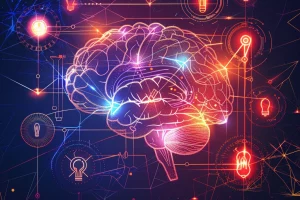Introduction
Memory is really important in our lives. It helps you remember things, learn new things, and understand yourself. It’s not just about storing information—it’s a skill you can improve with practice. This guide looks at memory experts and how they use their minds to the fullest. Let’s dive in!
Understanding Memory Experts
Memory experts are people who have perfected their memory capabilities to exceptional levels through dedicated training and practice. They are respected for their incredible recall abilities. They possess unique traits such as creativity, adaptability, and a keen attention to detail that separate them from the average person. They excel in areas such as pattern recognition, spatial awareness, and strategic thinking.
These individuals undergo rigorous training to hone their memory skills, drawing upon various techniques and strategies. From professionals in academia to contestants in memory championships, memory experts excel in fields such as education, research, and entertainment.

Memory Training Techniques Employed by Experts
Mnemonics:
Mnemonics serve as a cornerstone of memory training, offering powerful tools for encoding and retrieving information. Memory experts use various mnemonic devices to enhance memory capacity, including acronyms, visualization, rhymes and rhythms, and loci methods.
Some practical examples of mnemonics in action include creating vivid mental images, associating information with familiar concepts, and using storytelling techniques to enhance memorization.
Visualization:
Using the power of imagination, memory experts use visualization techniques to create strong mental images that help retain memory. They do this by creating detailed mental images and involving multiple senses at the same time. People can significantly boost their recall abilities by connecting information with memorable visuals.
Here are some tips for making visualization work better: practice visualization daily and use bright, colorful images to help ideas stick in your mind.
Association:
Memory experts are really good at linking together different bits of information, which helps them remember things for a long time. They turn complicated data into organized and memorable structures by grouping things together (chunking) and making up stories. They also connect new information to stuff they already know or use comparisons and metaphors to make connections stronger.
For example, they might use techniques like memory palaces or the word association game we’ve all tried at some point.

Repetition and Spaced Learning:
Effective repetition and spaced learning are the foundations of memory mastery. They use planned repetition schedules and spaced-out intervals to strengthen learning and help memories last longer. You can do this, too, by testing yourself and reviewing what you’ve learned regularly.
Case Studies: Insights from Renowned Memory Experts
The stories of people like Nelson Dellis, Dave Farrow, and Dominic O’Brien show us how powerful memory training can be. They prove that you can do amazing things with your memory, hard work, and never giving up.
Nelson Dellis
Nelson Dellis is famous for his incredible memory abilities. He’s won the USA Memory Championship four times and earned the title of Grandmaster of Memory. His interest in memory training started when he wanted to find a way to fight his grandmother’s Alzheimer’s disease. Dellis worked really hard and trained a lot to improve his memory skills. As a result, he’s been able to remember huge amounts of information and set many world records. His success shows just how effective memory training can be, inspiring others to challenge themselves and reach new levels of mental ability.

Dave Farrow
Dave Farrow is a memory expert who holds a Guinness World Record for memorizing the most digits of Pi. His interest in memory training started when he was young and dealing with dyslexia and ADHD. These challenges led him to create special memory techniques to help him in school. Farrow’s methods focus on being simple and useful, making it easier for anyone to memorize complex things. He shares his techniques through workshops, books, and media appearances. Farrow aims to help people worldwide unlock their memory potential and do well in school and at work. Check out Farrow Memory Program and develop unforgettable memory skills.
Dominic O’Brien
Dominic O’Brien, also known as the eight-time World Memory Champion, is a leader in memory training. He’s famous for his unbelievable memory accomplishments, like memorizing 54 decks of cards in order and 2,385 random binary digits in just half an hour. O’Brien’s interest in memory training started when he had trouble with dyslexia and a bad memory in school. But he didn’t give up. Instead, he worked hard and tried different techniques until he found what worked for him. Later, he started sharing his methods through books, talks, and workshops, helping others improve their memory skills.
The Science Behind Memory Expertise
Understanding memory isn’t just about remembering facts; it’s also about knowing how your brain works when you learn something new or recall a memory. Have you ever wondered what happens inside your brain when you master a new piece of information or recall a cherished memory?
In your brain, memory involves complex processes like encoding, storing, and retrieving information. Different parts of your brain, like the hippocampus and prefrontal cortex, are important for these processes. Studies using techniques like fMRI have shown us how these brain regions work together when we form and remember memories.
But wait, there’s more! Cognitive psychology dives even deeper, exploring how we think and the mental strategies behind memory mastery. From paying attention to new information to connecting it with what we already know and elaborating on it, the cognitive processes involved in memory are fascinating.
You can use techniques like paying attention, making connections, and thinking deeply about information to enhance memory. Paying attention helps you focus on what’s important while making connections, which helps you relate new information to what you already know. Thinking deeply about information helps you remember it better.

Research supports the effectiveness of memory training. Studies show that practicing memory techniques can really improve how well you remember things. Long-term studies have shown that systematic memory training can improve different aspects of memory, like recall and recognition.
Also, research has found that strategies like spaced repetition and visualization can help people of all ages improve their memory. So, the next time you do a memory exercise, remember that you’re using techniques backed by years of scientific research.
Practical Tips for Enhancing Memory Performance
From adopting simple everyday practices to using more advanced memory techniques in their studies and work, there are plenty of ways to improve your memory. Here are some useful tips to consider:
Practice Active Learning:
Engage actively with the material you’re trying to remember. Instead of passively reading or listening, ask questions, summarize key points, and generate examples to deepen your understanding.
Use Mnemonics:
Mnemonic devices, such as acronyms, rhymes, and visualization techniques, can make information more memorable. Create mnemonic cues to aid in recalling lists, sequences, or complex concepts.
Organize Information:
Organizing information into meaningful categories or hierarchies can facilitate memory retrieval. Use outlines, mind maps, or concept maps to structure information logically and interconnectedly.
Take Regular Breaks:
Avoiding information overload and burnout is essential for maintaining optimal memory performance. Take short breaks during study or work sessions to rest and recharge your brain.
Get Sufficient Sleep:
Sleep plays a crucial role in memory consolidation, helping to solidify newly learned information into long-term memory. Aim for seven to nine hours of quality sleep per night to support optimal cognitive function.

Stay Physically Active:
Regular exercise has been shown to improve cognitive function, including memory performance. Incorporate physical activity into your daily routine to enhance overall brain health.
Overcoming Common Challenges in Memory Training
While memory training can yield significant benefits, it has challenges. Dealing with information overload, combating forgetfulness, and maintaining long-term memory gains are common obstacles memory trainees face. Here are some strategies to overcome these challenges:
Prioritize Information:
Focus on mastering essential concepts or information that is most relevant to your goals. Prioritize high-value material and allocate your time and resources accordingly.
Practice Mindfulness:
Cultivate mindfulness techniques, such as meditation or deep breathing exercises, to enhance focus and concentration. Mindfulness can help you stay present and engaged, reduce distractions, and improve memory retention.

Implement Review Systems:
Establish a systematic review schedule to reinforce learning and prevent forgetting. Spaced repetition software or flashcard systems can help you optimize information for long-term retention.
Seek External Support:
If you struggle with memory training, don’t hesitate to seek support from friends, mentors, or professionals. Joining study groups, attending workshops, or working with a memory coach can provide valuable guidance and accountability.
Stay Persistent and Patient:
Memory training is a gradual process that requires persistence and patience. Celebrate small victories along the way and stay committed to your goals, knowing that consistent effort will lead to improvement over time.
Conclusion
In conclusion, learning about memory expertise is an exciting journey full of surprises, discoveries, and endless possibilities. You’ve looked at different methods and tips memory experts use, giving you important knowledge about how memory training works. From basic techniques like mnemonics and visualization to the deeper science of how the brain and memory work, you’ve learned a lot about how your brains work and how to make the most of your abilities.
By looking at the stories of famous memory champions like Nelson Dellis, Dave Farrow, and Dominic O’Brien, you’ve seen the amazing power of memory training in real life. Their stories motivate you to aim higher in your learning. They show us the hard work, commitment, and creativity needed to master memory and push the limits of what people can do.
So, whether you’re a student trying to do well in school, a professional looking to get ahead in your career, or just someone interested in the mysteries of memory, keep this in mind: you have the power to use your memory to its fullest. With dedication, hard work, and a love for learning, you can become a master of memory and unlock the full power of your mind.
FAQs
Q: Can anyone become a memory expert?
A: While memory expertise requires dedicated training and practice, people of all ages and backgrounds can improve their memory skills with constant effort and commitment.
Q: How long does it take to see improvements in memory performance?
A: The timeline for improving memory performance differs depending on individual factors such as baseline memory abilities, training intensity, and adherence to memory techniques. With regular practice, noticeable improvements can often be observed within weeks to months.
Q: Are there any risks associated with memory training?
A: Memory training is generally safe and beneficial for cognitive health. However, individuals with pre-existing medical conditions or cognitive impairments should consult with a healthcare professional before embarking on any memory training regimen.


